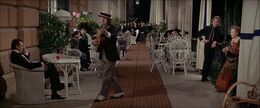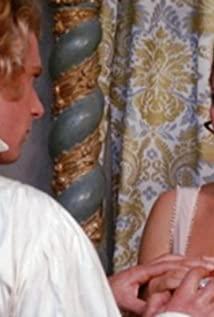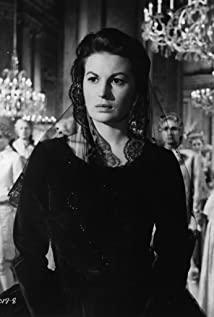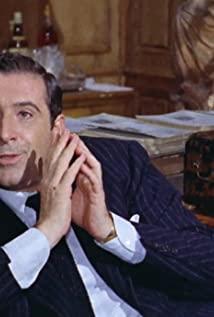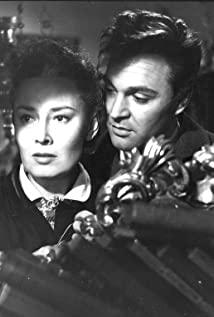This was written on my neighbor's ear when I was in college. Today, I occasionally wanted to search for a sentence, but I found the full text in the high praise comment below Xiami's Mahler's Fifth Symphony. Neighbors' ears have been closed last year. If it weren't for the person who reposted it, this article should have been lost. The person who reposted also wrote my neighbor's ear id. Looking at this article now, it is certainly not good to write it, but I have not made much progress in these years, and I have lost my enthusiasm in vain, and I will never be able to write such things again. Lost my voice, and posted this old article here as a souvenir.
******
I admit, listening to Mahler begins with the Fifth Symphony. The fate with the Fifth Symphony began with the movie "Breaking the Soul in Venice". Why watch this movie? because I saw a photo. Well, that's right, it's the legendary Burn Anderson, the world's most beautiful boy. Shocked.
The film depicts a composer who suffered the double blow of losing his daughter and failing to perform in succession. He was exhausted and came to Venice to recuperate. Venice, such a beautiful city, has become dirty, noisy and chaotic in the net of tourists and profiteers. Sensitive composers are deceived by boatmen here, endure the flattering philistines of profiteers, see all kinds of hypocrisy and listen to all kinds of lies. The clown-like artist who appears in the film is the embodiment of this ugliness. But the composer met the boy here. The young man had a face as slender as a Greek statue. The city plague is rampant, but the composer is reluctant to leave. He follows the boy in the streets and alleys of the city. In the empty city where the sewage was flowing and the lime mist drifted, the composer contracted the plague. Before dying, he still stretched out his hand in vain, towards the frothy phantom of the youth rising from the sea.
I remember the most, there is a scene, the composer met the boy in the elevator. The boy took off his hat and carelessly rubbed his hair. The teenager stared at the composer without speaking. There were only a few people between them, and they were in such a cramped space. The teenager stepped back and walked out of the elevator, his eyes were frank and clear, and he did not look away. Heartbeat, heartbeat. The composer fled back to his room, tore off his hat, disheveled his hair, and looked old. He sat slumped, looking at his wife's photo. This gentle woman could not make him feel at ease at this time. He spread his hands in vain, as if to ask "what the hell", but got no answer. He stood up nervously and waved the items on the table to the ground. The purity and morality that he had always adhered to in his heart collapsed instantly. The beautiful, youthful boy, the source of all his envy, jealousy, and love, made him unable to extricate himself, and made him despair. Teenager is the fantasy he pursues, all the desires of his ageing.
He dyed his hair black, put on white powder, painted red lips, and the barber said, "You can meet your lover," and he smiled hopefully. The old man, like a monster, followed the boy, and finally collapsed on the ground, exhausted. Passers-by in the distance saw the patient-like composer and turned away. The old man suddenly laughed wildly. Accompanied by the sound of the violin, despair, strife, and helplessness twisted each other to a climax, like the saddest way of interrogating God in the heart: "May my troubles be weighed, and all my disasters be placed in the scales. Heavier than sea sand." His assistant's hysterical satanic whispers sounded in his ears at this time: Your everything is tasteless, your morals, your music, they should all go to the grave. You are old. Of all the impurities, aging is the most impure.
Aging is a helpless thing. The once-beautiful young man could not escape his fate. His eyes remained the same, but his delicate face was already wrinkled. Looking at his face, I can't help but sigh: why beauty can't last forever.
Take a look at Mahler's photos. The composer in the film, how similar to him! And why is he not pursuing the martyrs on the road? Mahler, homeless in a triple sense: "A Bohemian among Austrians, an Austrian among Germans, a Jew among all men on earth". His symphonies are unimaginably dense with anxiety and contradiction, sadness and injustice. But he still pursues beauty, pursues purity, pursues home and love, pursues heaven. Just like the end of the Eighth Symphony, "Everything is impermanent, just a shadow, the unattainable, in this matter has become, the indescribable, is here, the eternal woman, leading us upward." Wife infidelity, blows follow. In the end, he had to turn to nothingness, to death, and to find no home in his life.
In this world, I am just too small and ordinary dust. The lack of talent and lack of sensitivity allowed me to live safely in my mediocrity. But spiritual homelessness, without support, is it not accompanied by us? I don't need to burn myself, but I can't light myself.
I read a passage a few days ago: "This is what a good life is like. On this side, hormones, vanity and desire are like fire, burning to death; on the other side, compassion, kindness and love, and personality cultivation can also be Never ending. Of course, in bad life, meanness and tyranny can never end. The latter and their organizations may be rich and powerful, but not cocky. We have another world to rely on. "That's the case, but how difficult is it for each of us to find support? Life, let us let go of "hormones, vanity and desire", and the perfection of personality, the eternal answer, is so far away. Life is a process of passing away, beauty is always so short, and the meaning of life is so hard to find. man, so lonely. How should I choose to live? Where is the answer?
Life and life are always a pair of dead ends.
View more about Death in Venice reviews






